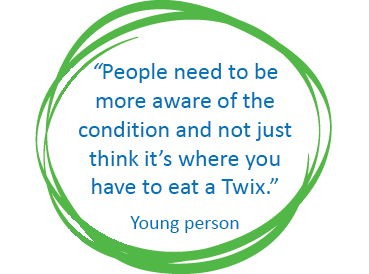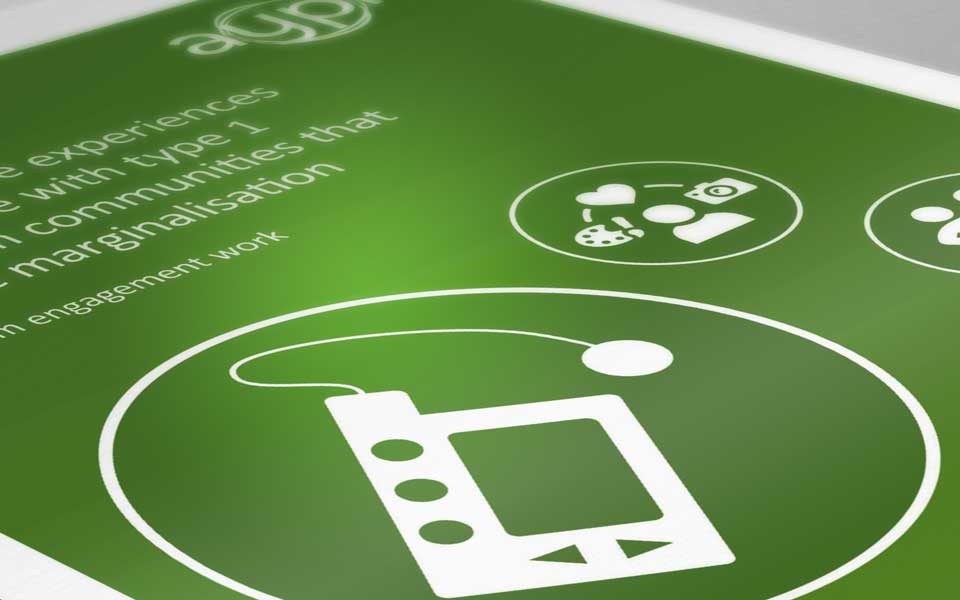Type 1 diabetes is often diagnosed in late childhood or adolescence. The challenges of managing a new life-time health condition can be particularly acute for young people in communities more likely to face marginalisation.
Findings from our scoping review of relevant literature highlighted that whilst there is a fairly well established body of work on young people’s views of living with diabetes there is much less in relation to children and young people from groups more likely to experience marginalisation. Evidence suggests that the issues for young people experiencing marginalisation might be similar to those for all young people but amplified with for example heightened stigma.
Working closely with our partners the Race Equality Foundation and RCPCH &Us this project sought to increase our understanding of young people’s perspectives. We spoke to children and young people with Type 1 diabetes from Black and minority ethnic communities and those living in deprived areas, from across England and Wales.
Our infographic highlights the themes from the participation sessions which included young people’s love hate relationship with technology. Young people acknowledged how diabetes management technology can make their lives much easier but also the challenges including language barriers to access and fear about learning how to use equipment and technology. The importance of making technology more engaging was also a theme.
Recommendations arising from participation work include the need for:

- Technology to be more inclusive ensuring it is accessible to families in more deprived areas and where English is not the first language
- Increased youth led information about diabetes – by young people for young people
- Increased engagement opportunities for young people and their families
- Health services to create new strategies to engage with young people and families they don’t hear from
- Focus on increasing public awareness about type 1 diabetes in all the spaces where young people are
Find out more in our engagement report, scoping review and infographic summarising the findings.

